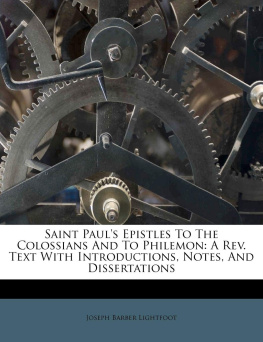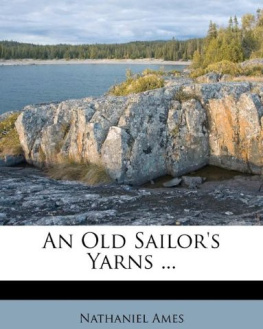The Political State of the British Empire...
John Adolphus
Google Book Search
This is a digital copy of a book that was preserved for generations on library shelves before it was carefully scanned by Google as part of a project to make the world's books discoverable online. See the back of the book for detailed information.
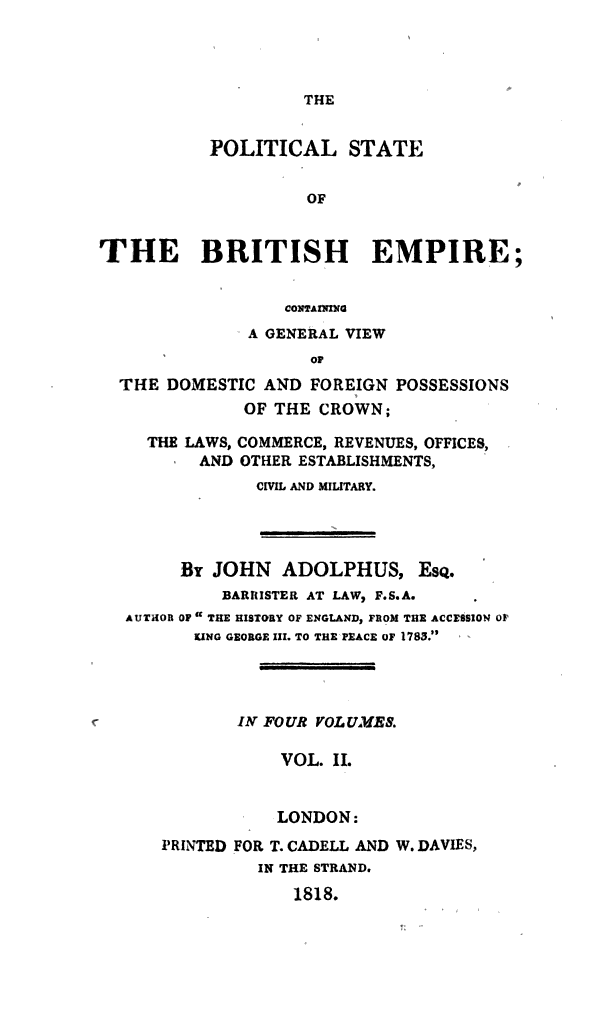
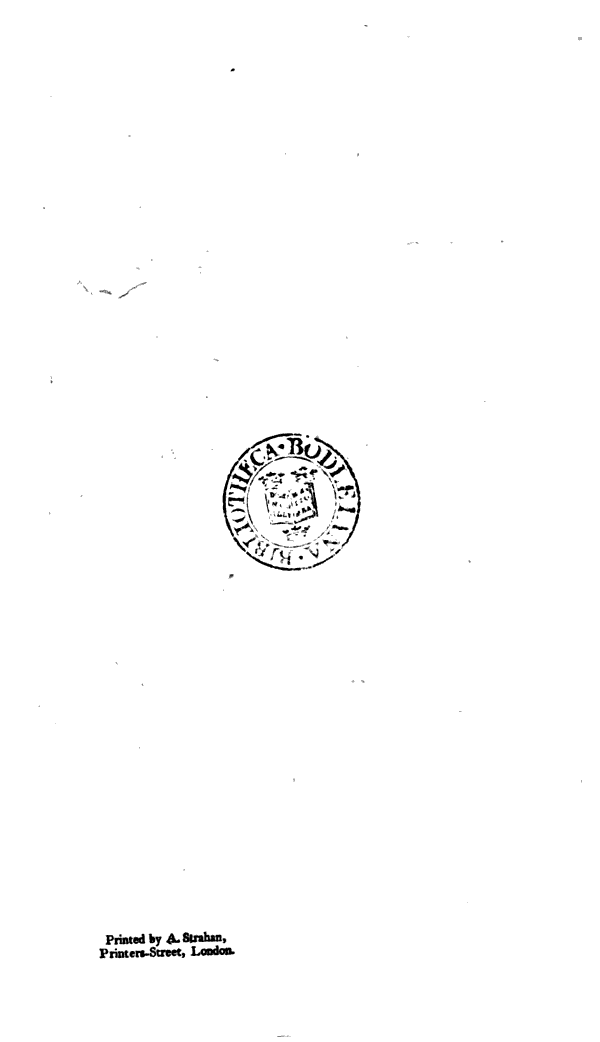
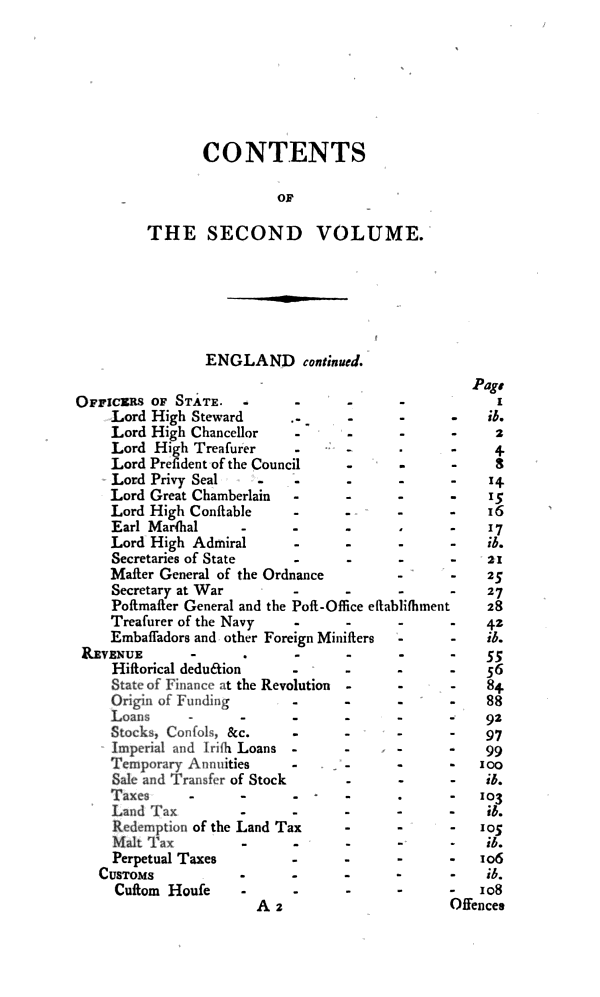
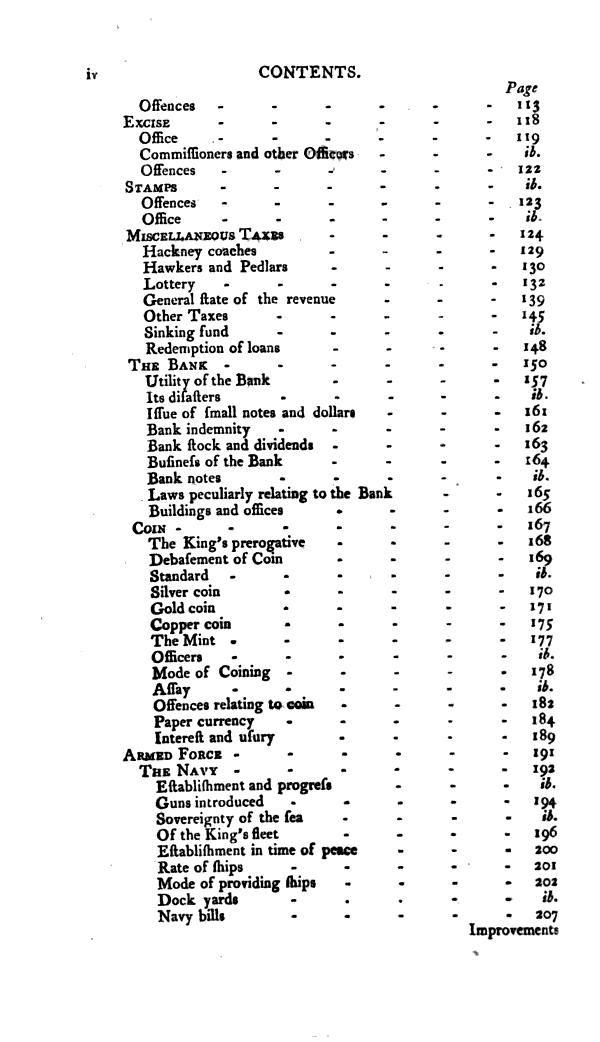
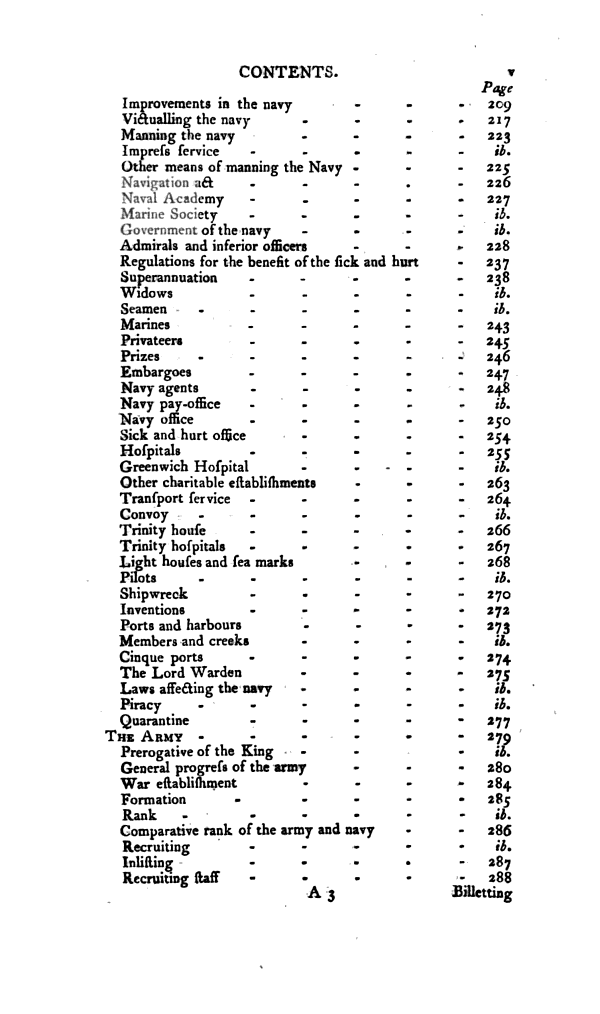
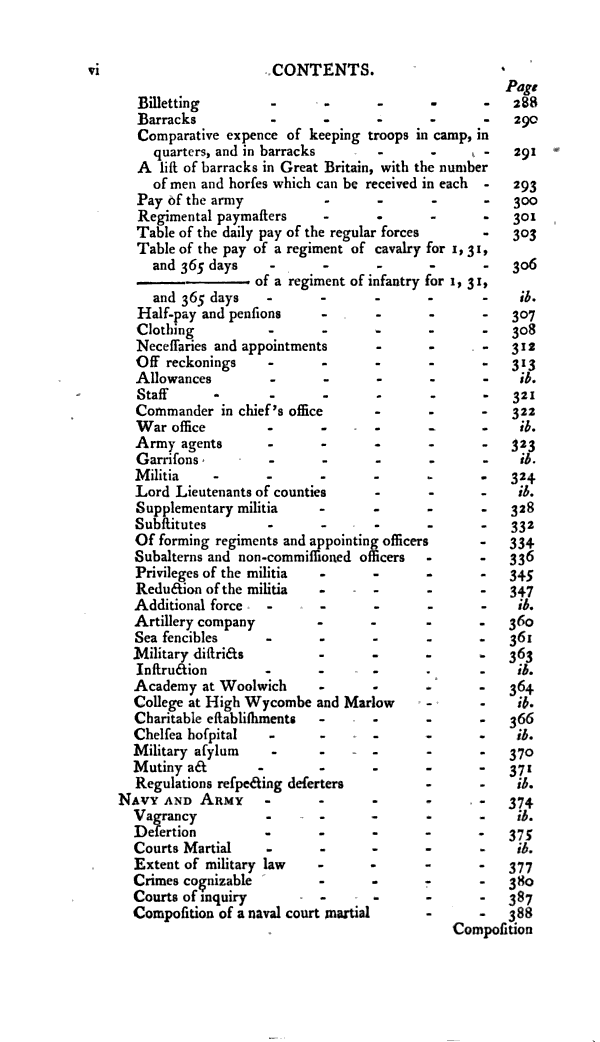
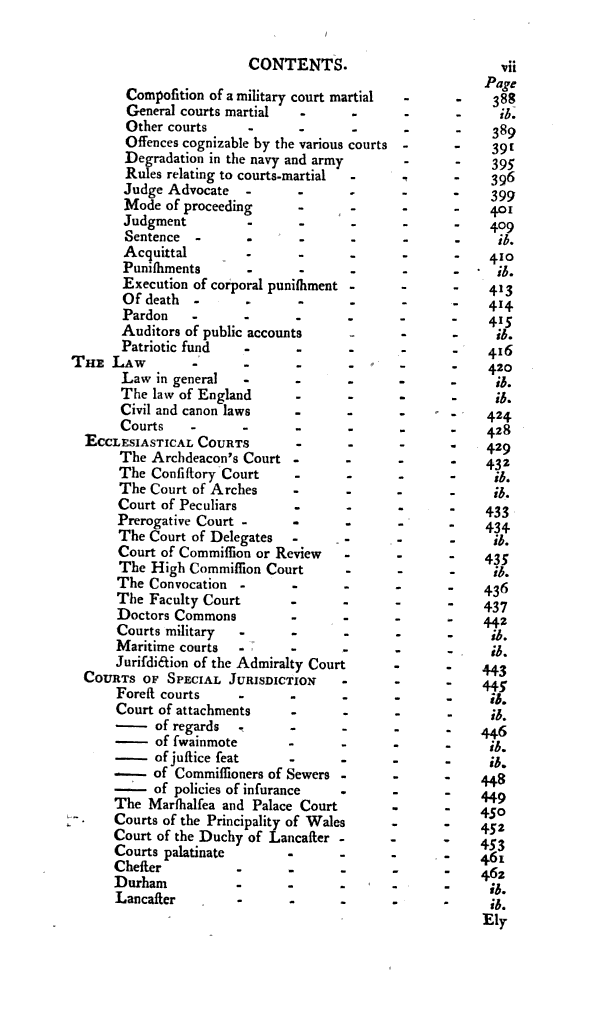
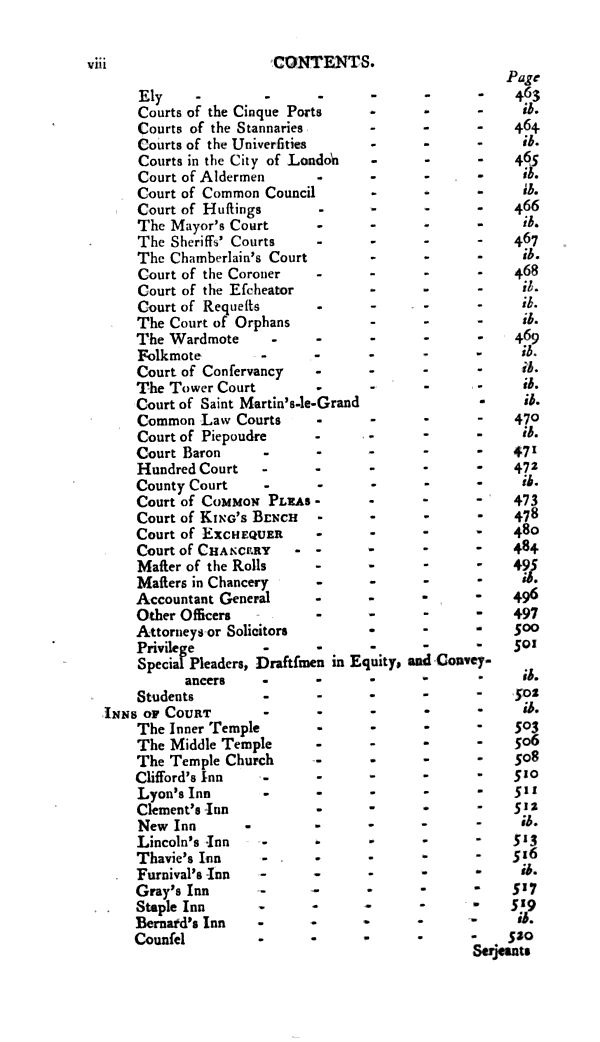
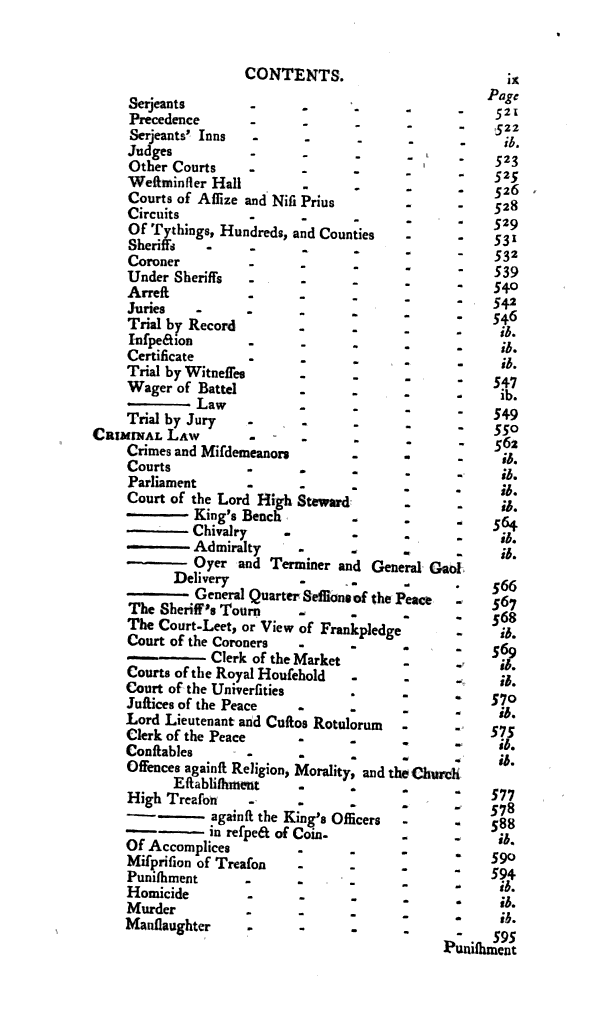
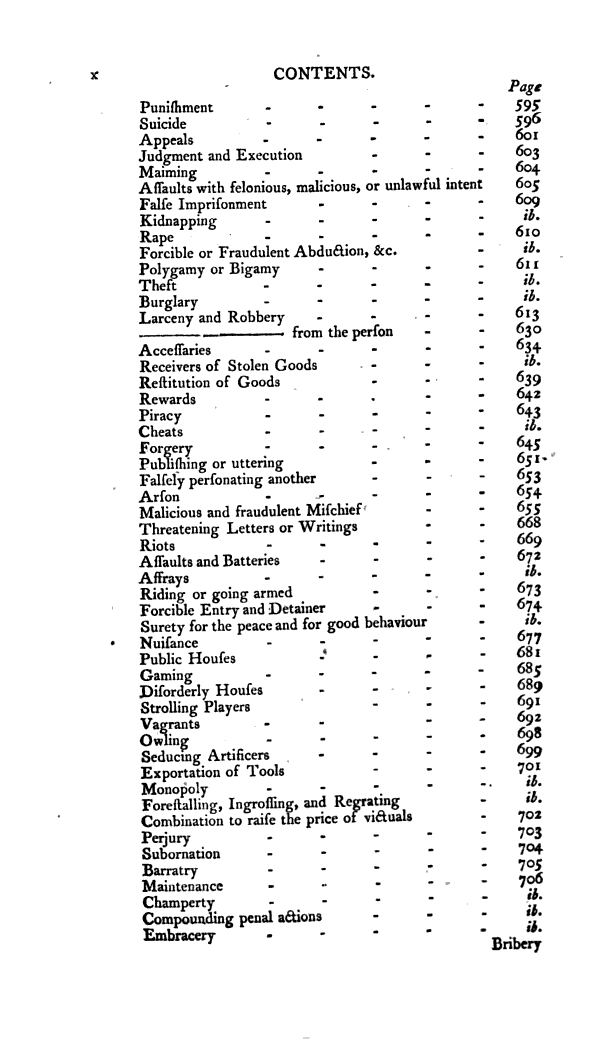
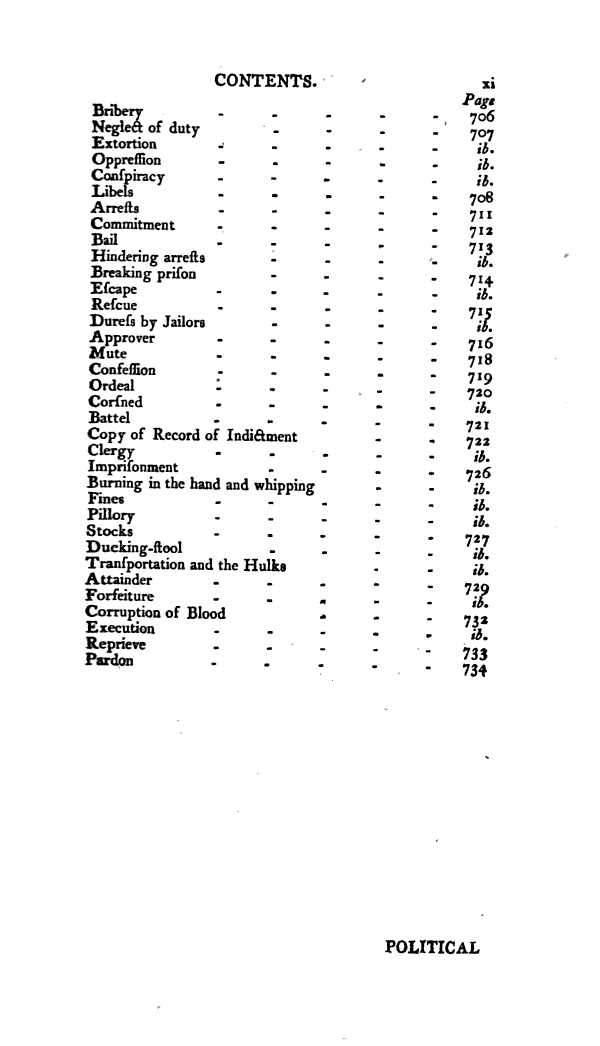
POLITICAL STATE
OF THE
BRITISH EMPIRE.
OFFICERS OF STATE.
'T'HE general necessity of employing agents of talent and credit to execute the business in the various departments of government is strongly felt in every country; but the assignment of each branch to a distinct avowed minister is peculiarly requisite in the British system. In other nations, the bounty and patronage of the crown, and the execution of all the weighty affairs of state may be committed to one person, distinguished by the name of t.ivourite, prime minister, or premier, and his malversations may be sheltered by the authority of the monarch; but, in Great Britain, the axiom, thnt the king can do no wrong, is prevented from becoming an engine for oppressing the subject, by the strict responsibility annexed to the situation of ministers, and the- power of inquiry and impeachment tenaciously reserved, and. vigorously exercised by parliament.
In the following enumeration, the dutiesof die most eminent ministers of state will be exhibited, and some details afforded respecting the offices or departments over which they preside. They are given in the order of their precedence, with the addition of embassadors and consuls in foreijni lands.
I. The Lord High Steward. In ancient times the lord1 high steward of England was the first great officer of the crown. The title is of Saxon etymology,yW signifying rooms or Jlead, and ward A warden or keeper; and therefore to the lord high steward of England belonged vice-regal power. As next under the king he supervised and regulated the administration of justice, and all other affairs of the realm both, civil and military.
Vol. II. B The The office was of great antiquity, being established before the reign of Edward the Consessor. It was annexed to she lordship of Hinckley in Leicestershire, which, belonging to the family of Montsort earl of Leicester, the poffessors of that title were, in right of their sief, hereditary lord high stewards of England. Simon de Montsort, the last earl of that family, being deseated in the rebellion which he raised against Henry III., and his estates becoming forseit, the monarch prudently embraced the opportunity of retrenching the authorities of an office which, in the hands of a turbulent and ambitious man, had been found sufficient to disquiet the rule it was intended to ensorce, and shake the throne it was destined to support. It still continued, though reduced in power, an office of inheritance, till Henry of Bolingbrokc, who last poffessed it in that form, usurped the throne by the title of Henry IV. From that period lord high stewards have been appointed pro kac vice only, generally to officiate at coronations, or at trials before the high court of parliament.
A lord high steward, appointed for a coronation, receives and decides on the bills and petitions of all persons, peers or others, claiming to hold estates by grand serjeanty, and, in virtue of that tenure, so do certain honourable services at the king's coronation. lu these cases, he is obliged to judge according to the laws and customs of the realm, and is entitled to customary sees and allowances. At the coronation, he carries St. Edward's crown, and the office is never conserred on any but a peer of parliament. Mention has already been made of the duty and office of the lord high steward on the trial of impeachments; he is, on thofe occasions, attended from his own abode to the house of lords in great state by the judges and officers of arms, and, aster reading his commiffion, the white wand is with much ceremony put into his hands, and from that time, during the. sittings on the trial, he is styled your grace. This office being only occasional, does not affect the general government of the realm, but is noticed in this place on account of its dignity.
2. Lorp High Chancellor. The situation of loid high chancellor is the most dignisied of all thofe which are considered as permanent; it is not indeed absolutely necessary that there should always be a lord chancellor, since the great seal may be given to a lord keeper, or put in commiffion. The powers of lord chancellor and lord keeper are the fame, and therefore since the statute, 5 Elizabeth, both cannot be appointed at the fame time; formerly they could, for it is faid Henry V. hud a great seal of gold which he delivered to the bishop of Durham, making him lord chancellor; and one of silver, which he gave to the bishop of London, appointing him lord keeper. By stat. 1 W. & M. c. 2t., commiffioners appointed to execute the office of lord chancellor may exercise all the authority, jurisdiction, and execution of laws, which the lord chancellor, or lord keeper, of right ought to use and execute. Since that period the great seal has, on various occasions, been in commission, either in times when the pretensions of different persous could not be adjusted without difsiculty by the other members of the cabinet, or when no person sussiciently eminent to sill a station fo exalted could be found to accept one from which he might be so suddenly removed.
The lord high chancellor or keeper is created by the mere delivery of the king's great seal into his custody; whereby he becomes, without writ or patent, an officer of the greatest weight and power of any now subsisting in the kingdom, and superior in point of precedency to every temporal lord i and the act of taking away this seal by the king, or of its being resigned or given up, determines the office. The name chancellor is faid to be derived


